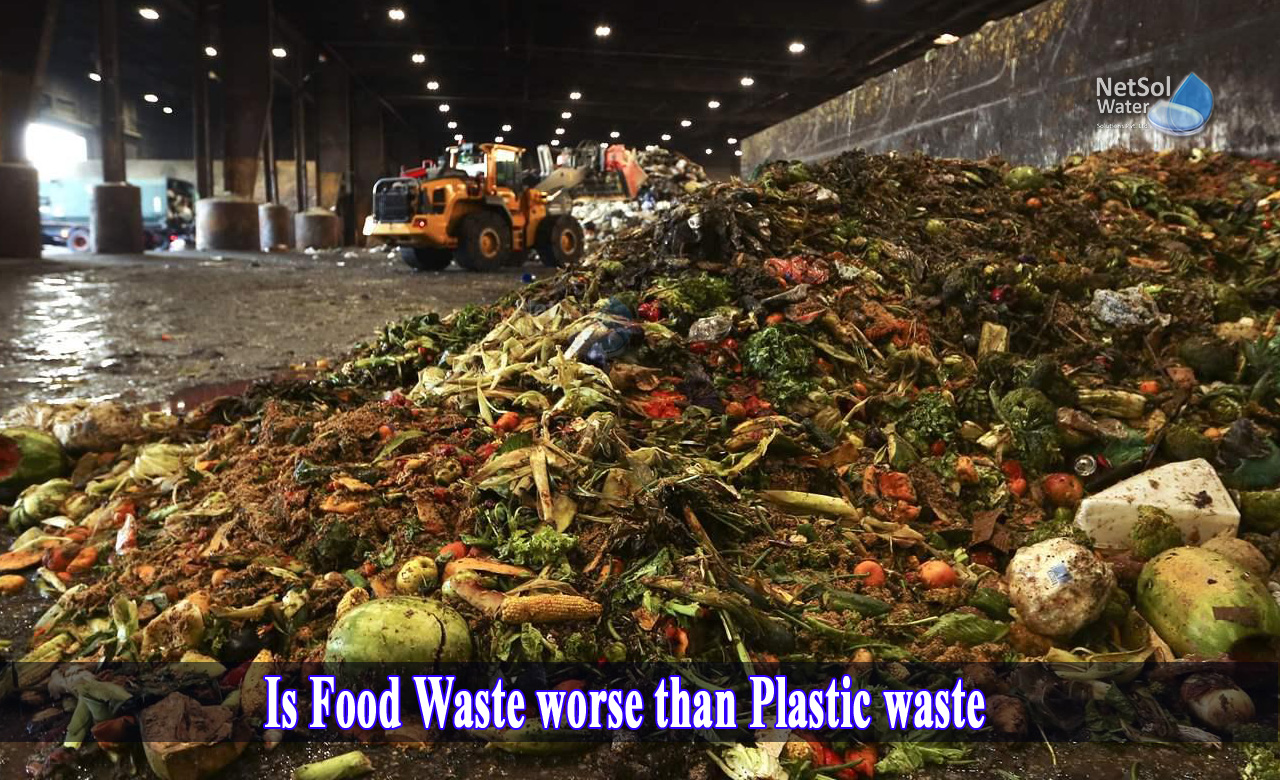Is Food waste worse than plastic waste?
The average Indian produces 4.48 pounds of total waste each day. Food waste amounts for 15.1% of total solid waste created, whereas plastic waste accounts for 13.1%. Aside from the volume of waste, it is also critical to evaluate how our waste is processed.
There are three common waste treatment procedures in India:
(a) The most prevalent is land-filling,
(b) Recycling and composting,
(c) Energy recovery combustion
Surprisingly, just 3.4% of plastic waste and 2% of food waste is recycled or composted. Landfilling and combustion rates are similarly low; around 16% of plastics and 22% of food waste are disposed of in this manner.As a result, our waste stream contains almost the same amount of plastic waste and food waste.
The issue of Methane with Food Wastage
Whether you're tossing away full loaves of bread or scraping the last of a salad into the waste, every fragment of food that ends up in a landfill has a negative influence on the environment. While plastic emits unneeded CO2, food waste emits massive volumes of methane, posing an even larger hazard to the earth.
According to Government officials, one tonne of methane causes about 25 times the harm as one tonne of carbon dioxide over a 100-year period. Given how little attention food waste receives when the topic of the climate issue is brought up, this is a very startling difference.
Why is methane harmful to the environment?
When food rots in landfills, anaerobic (no-air) bacteria break it down and emit methane. When methane is released into the atmosphere, it settles and traps heat, leading to climate change. If we stopped wasting food entirely, we could decrease 8% of our global emissions overnight.
The plastic waste recycling revolution
Over the last decade, our opinions regarding plastic have altered. Single-use plastic, formerly thought to be the most practical material for storing food, packing garments, or making home items, is now at the heart of the climate crisis movement. With so much progress being achieved, it's no wonder that so many people are rallying behind the cause.
Landfills received 27 million tonnes of plastic waste in 2020 alone. Plastic is damaging to humans, animals and the environment because it takes hundreds or even thousands of years to degrade.With governments declaring war on single-use plastics and people doing their part to decrease waste, the future of the plastic crisis is looking brighter.
What role can a Food Waste Recycler play in solving this problem?
While significant harm has already occurred, there is still time to reverse human effect and slow the course of climate change.Food recyclers or at-home composting options are an excellent way to reduce food waste. By decomposing food in a smell-free and compressed environment, food recycling devices reduce your carbon footprint and eliminate your methane output.
Conclusion
The struggle against climate change obviously can’t be won by merely recycling food waste, just like it won’t be addressed by a lone commitment to eliminating plastic. Our efforts should be directed towards making the planet a greener place by reducing waste in all aspects of our lives.But, with the methane situation worsening and little being done to halt it, recycling food waste is more crucial than ever!
If you'd like to learn more about how a Food Waste Recycler might help you transform your food waste, call on +91-9650608473 or send an email to enquiry@netsolwater.com and assist your fellows in becoming more environmental friendly.
Netsol Water is Greater Noida-based leading water & wastewater treatment plant manufacturer. We are industry's most demanding company based on client review and work quality. We are known as best commercial RO plant manufacturers, industrial RO plant manufacturer, sewage treatment plant manufacturer, Water Softener Plant Manufacturers and effluent treatment plant manufacturers. Apart from this 24x7 customer support is our USP. Call on +91-9650608473, or write us at enquiry@netsolwater.com for any support, inquiry or product-purchase related query.



